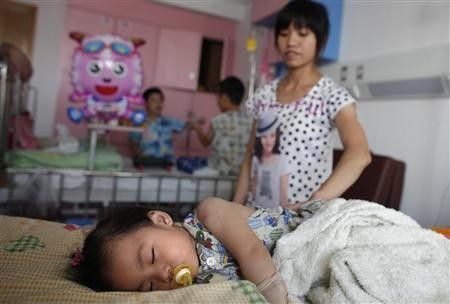China probes Johnson Controls unit for alleged lead
A China unit of major lead-acid battery maker Johnson Controls has halted production at its Shanghai factory as authorities investigate into an alleged lead pollution case, the official Shanghai Securities News said on Thursday.
Shanghai Johnson Controls International Battery Co has been in the spotlight after children in Kangqiao area were found to have ultra-high levels of lead in their blood during medical checks, the newspaper said.
A team of government officials are investigating the potential lead pollution from the company and the firm will halt production for about a week from Wednesday (September 14), it said, citing an unnamed company staff.
Johnson Controls said the company was aware of the concerns raised by local residents which it takes very seriously.
We are working with the government to understand and address these issues. However, we have no reason to believe we are the source of the issue, it said in a statement.
In July, environment group Greenpeace accused some of the world's leading clothing brands of relying on Chinese suppliers that pollute rivers with toxic, hormone-disrupting chemicals banned in Europe and elsewhere.
Adidas, Nike, Puma, Calvin Klein, Lacoste, Abercrombie and Fitch and China's Li Ning were among the global names in the Greenpeace report, following a year-long investigation.
Last month, Chinese environmental groups accused Apple Inc of turning a blind eye as its suppliers pollute the country, the latest criticism of the technology company's environmental record.
Residents in Kangqiao said at least 10 children have been hospitalized due to extra high levels of lead in their blood.
There is a storage battery production factory, a waste incinerator and a nearby garbage-processing station that could be the cause of the pollution. These things should all be harmful, said 30-year-old Cao Gong, father of 7-year-old Cao Chen who is now in a hospital.
They (the government) should immediately ask the hospital to treat these children so that they can get well as soon as possible. As of now, they have not even come to ask us (about our situation).
Johnson Controls said last October it would spend $118 million to build its third auto battery plant in Chongqing.
The company eventually plans to install capacity for 30 million batteries in China by 2015.







© Copyright Thomson Reuters 2024. All rights reserved.











